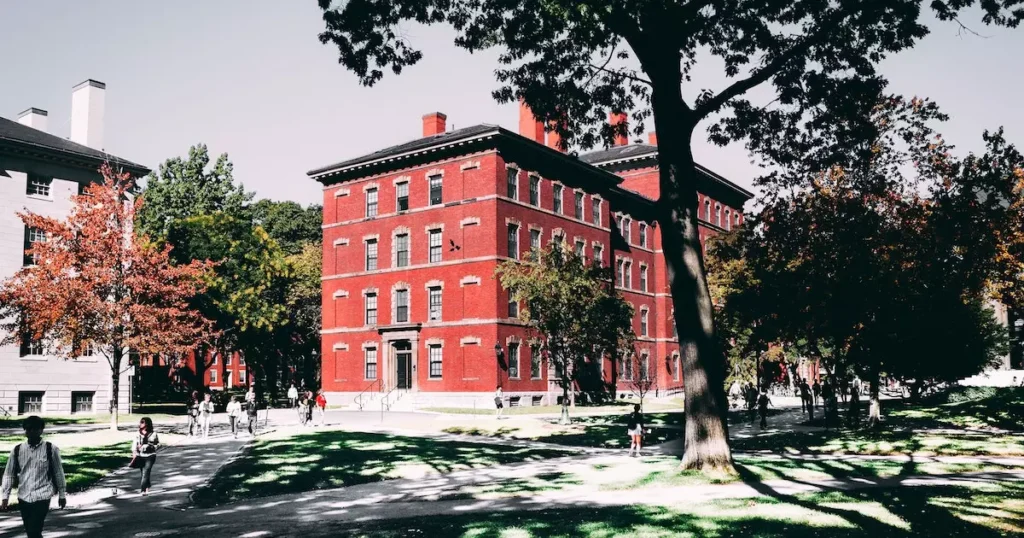THESE ARE TOP Cities for Studying Abroad
Studying abroad can be one of the most exciting and enriching experiences as a university student. Europe offers an unparalleled variety of destinations, cultures, languages, and educational institutions to immerse yourself in. If you’re considering where to study abroad in Europe, these top cities should be on your radar.
London, England

As a global center of finance, media, culture, and history, London is endlessly fascinating and multicultural. Home to world-class universities like LSE, Imperial College, and UCL, academic options abound. Enjoy famous sights like Big Ben and British Museum between classes. Part-time work is abundant for students in pubs, shops, restaurants. Experience the English traditions of afternoon tea, football matches, and pub culture during your stay.
Paris, France

The City of Light shines with romance and beauty. Follow in the footsteps of great thinkers and artists at historic French institutions like the Sorbonne while strolling along the Seine. Practice your French language skills while gaining a true taste of Parisian lifestyle sipping cafes and people watching. Indulge your inner foodie at bustling markets and cozy bistros. Paris offers a perfect blend of culture, cuisine, and learning.
Barcelona, Spain

This coastal Mediterranean hub boasts distinctive architecture, nightlife, and beaches alongside top universities. Programs in English or Spanish are available. Savor tapas and watch flamenco dancers after class as you engage with the local culture. Cheaper costs of living than other European hubs make Barcelona attractive for students. Revel in Gaudi’s eclectic designs and exuberant spirit when taking a break from studies.
Berlin, Germany

Germany’s capital blends edgy artistic flair with modern effiency. costs of living are lower than other Western European cities, allowing student budgets to go further. Pursue degrees ranging from engineering to arts at universities like Freie Universität and Humboldt University. Practice your German and experience world-famous nightclubs, concerts, and galleries. Berlin allows you to soak up European history while being on the progressive cultural cutting edge.
Copenhagen, Denmark

This eco-friendly bikeable city consistently ranks as one of the happiest places to live. Study sustainability, urban planning, healthcare, or engineering at English-language programs offered by Technical University of Denmark, Copenhagen University, and Copenhagen Business School. Enjoy hygge lifestyle pursuits like harbor swimming, markets, and cafes when not immersed in Denmark’s high-tech knowledge economy.
Dublin, Ireland

Dublin’s lively pubs, music scene, and literary legacy make it an atmospheric place to study. Programs at Trinity College, University College Dublin, and Dublin City University allow you to delve into Irish culture and history while enjoying the friendly locals. Many technology and economics degrees are offered in English. Dublin lets you study abroad while surrounded by rich traditions and storytelling.
Choosing a University
Once you’ve narrowed down your desired destination city, extensive research into potential universities is essential.
- Compare degree programs and specializations between universities to find the best academic fit.
- Entry requirements like language proficiency, past grades, test scores, and prerequisites vary.
- Carefully weigh costs of tuition and living expenses – some countries offer discounted rates for international students.
Application Process
Read Also: 12 POSITIVE THINGS TO KNOW WHEN MOVING TO GERMANY
Applying to overseas universities can be time-intensive. Typical required components include:
- Completed application forms – often available online.
- Official transcripts and diplomas from previous institutions, translated if needed.
- Standardized test results like TOEFL or IELTS for English proficiency.
- Letters of recommendation from teachers or mentors.
- Written personal statements explaining your motivations and goals.
- Application fees and deadlines vary per school – organize materials accordingly.
Getting a Student Visa
Once accepted, the next vital step is obtaining your student visa for legal residence. Requirements differ between countries but common elements are:
- Valid passport with ample remaining validity.
- Acceptance letter from your chosen university.
- Proof you can support yourself financially for the entire duration of studies.
- Health insurance coverage may be mandated as well.
Read Also: TOP 10 SUNNY PARADISE DESTINATIONS FOR RETIREMENT ABROAD
Visa processing can take weeks or months – avoid headaches by applying early with complete documentation. Confirm visa rules and start the paperwork promptly.

Housing Considerations
One major choice is whether to live in university dorms or seek private housing with roommates. Dorms provide a built-in community and convenient location, but less privacy. Sharing an off-campus apartment gives independence and space but requires more effort arranging.
- Look into residency requirements – some universities mandate freshman live on campus.
- Compare dorm room types and meal plans included to pick the best value.
- Search housing Facebook groups, websites, and message boards to find shared flats and rooms for rent.
Read Also: MOVE TO JAPAN: 13 ESSENTIAL TIPS FOR A SMOOTH TRANSITION
Managing Finances
Studying abroad isn’t cheap, so diligent budgeting is key. Track expected costs like:
- Tuition and university fees
- Rent, utilities, internet
- Health insurance, medical care
- Food, household supplies
- Public transportation
- Books, electronics
- Entertainment, travel, clothing
Applying for scholarships and financial aid where possible can offset expenses. Living frugally by cooking at home, taking advantage of campus amenities, and budgeting for just occasional dining out or nights out helps too.
Part-Time Work Opportunities
Check your student visa terms – some allow part-time employment up to 20 hours per week, like in the UK and Ireland. Others prohibit working, like in France.
- Look for paid campus jobs in dining, libraries, events, tutoring or department research.
- Explore gig economy apps and platforms like Uber, TaskRabbit or Care.com.
- Consider doing virtual freelancing online in writing, design, web work or tutoring.
Having some income helps cover costs, but focus primarily on your academics rather than overworking.
Read Also: 15 THINGS YOU SHOULD KNOW BEFORE YOU MOVE TO CANADA
Adjusting to Life Abroad
Finally, give yourself grace and time adapting to massive changes in culture, language, academics, social life, and independence when first arriving.
- Manage expectations – culture shock is normal. Stay determined through challenges.
- Immerse yourself in diverse new friendships – both locals and fellow international classmates.
- Find healthy stress outlets like sports, art, or journaling to nurture your inner world.
Studying abroad is an privilege – keep an open, balanced mindset and you’ll be enriched in untold ways. This adventure shapes you as much as your academic learnings.
Wrap it up
Selecting where to study abroad in Europe offers so many dynamic options. Cosmopolitan hubs like London, Paris, and Barcelona combine iconic ambiance with prestigious universities. Affordable cities like Berlin, Copenhagen, and Dublin allow student budgets to stretch further. Wherever you choose, embracing the cultural immersion with an adventurous spirit leads to once in a lifetime experiences. Studies combined with life lessons gained ultimately widen your perspectives for lifelong impact.
FAQs
Q: How early should I begin researching study abroad programs and applying?
A: Ideally 12-18 months in advance. Popular programs fill up quickly – give yourself ample target deadlines.
Q: What are the best ways to find housing in another country as a foreign student?
A: University dorms, student-focused rental agencies, local housing groups on Facebook, and sharing an apartment with other students.
Q: Do I need to be proficient in a foreign language before studying abroad in countries like France or Spain?
A: Not necessarily – many undergraduate programs are offered in English – but basic skills help immerse yourself and make local friends more easily.
Q: What are some tips for saving money as an international student?
A: Cook meals at home, walk/bike rather than using taxis or transit, enjoy free campus events, split costs by living with roommates, limit going out drinking.
Q: What are the benefits of studying abroad versus staying local?
A: Exposure to different cultural perspectives, becoming bilingual, independence and personal growth, international career opportunities, adventure of living in a new country.


Pingback: Traveling with Diabetes Checklist - 12 Essential Tips for a Happy Journey - Trekking Abroad
Pingback: 25 Romantic Things to Do For Couples in New Orleans - Trekking Abroad